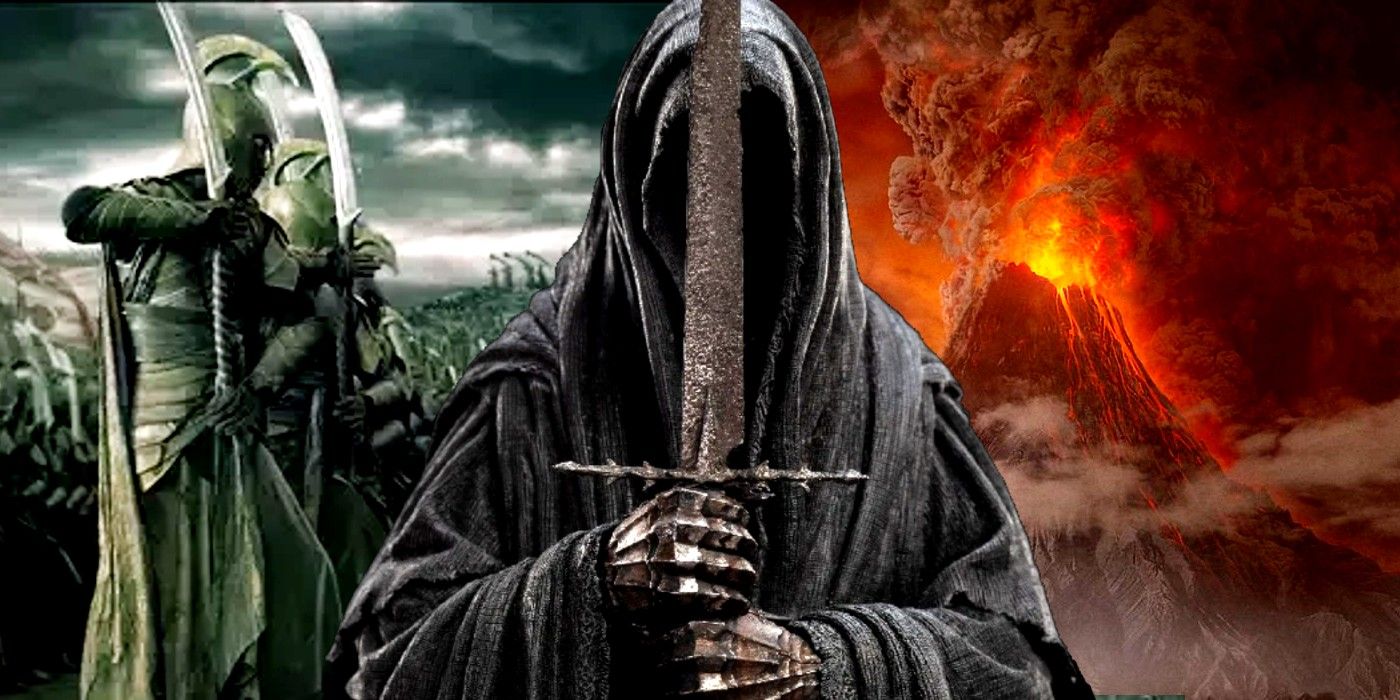Unveiling the Nazgûl's Secret Message in 'The Lord of the Rings'

Let’s talk about Howard Shore and his magnum opus—a soundtrack so hauntingly beautiful and utterly memorable that it basically became the musical equivalent of the One Ring itself. When Peter Jackson unleashed his vision of The Lord of the Rings, Shore endowed us with an orchestral masterpiece that practically defined what we now think of as Middle-earth. You might say he did for fantasy scores what a well-placed glass of red wine does for a cheese platter. He transformed the score into an exquisite indulgence that we can all savor.
Shore’s ace up his sleeve—which was also, let’s be honest, his not-so-secret weapon—was the clever use of leitmotifs. You know, those recurring musical phrases that slide in and out like a charming party guest at a well-throw soirée, perfectly timed and always leaving you wanting more. Each character, place, and even the dreaded One Ring had its own sound signature, making it feel like the soundtrack was a map of our emotions, complete with a few detours into dark, mysterious corners.
Among these themes, few are as memorable as the chilling melody of the Nazgûl, those shadowy henchmen of Sauron, who left a trail of dread and doom wherever they roamed. When they appeared, accompanied by an echoing choir chanting in some sinister language, you could almost feel the temperature drop—a perfect backdrop to their spectral presence. Can we take a moment to appreciate how amazing it is that a theme could practically grab your coat and pull you into the shadows? That’s musical genius, folks.
The Nazgûl theme didn’t come with a shiny name tag—it mingled with other pieces like “The Black Rider” and “A Knife in the Dark.” But woven into this symphonic tapestry was a poem—the aptly titled "The Revelation of the Ringwraiths." Given the meticulous care poured into every pixel and note of The Lord of the Rings trilogy, it’s no surprise that this poem had layers, like a fine baklava of existential dread and tragic backstory.
Fast forward to the riveting, albeit slightly chaotic, universe of Amazon's The Rings of Power. Here, we witness Celebrimbor, the elf craftsman with the burden of creativity, basically being strong-armed by Sauron into making the Nine Rings. Talk about workplace pressure! It’s like being tasked with baking an intricate wedding cake while knowing your boss intends to smash it for some nefarious purpose. Despite his noble reluctance, Celebrimbor manages to craft these rings, only to later lose them to Sauron. Classic “don’t take the bad guy’s orders” scenario, wouldn't you agree?
The Nine Rings, shiny and alluring, promised their human wearers everything: powers galore and immortality, but then—plot twist—they became utterly enslaved to Sauron, which is more than a metaphorical slap in the face. They exchanged their humanity for a power trip that ended in complete depravity. The first of these Nazgûl appeared during the tumultuous third millennium of the Second Age, dutifully executing Sauron’s dark errands until being temporarily vanquished during the War of the Last Alliance. As Sauron staggered back to health, so did his eerie entourage, looming ominously as they set their sights on "Shire" and "Baggins.”
The eerie lyrics of "The Revelation of the Ringwraiths" are penned in Adûnaic, a whimsical language that Tolkien fashioned for his intricate universe. Adûnaic, the tongue of Númenor, had just about as many words as most of us have on a good day—fewer than 200—but still managed to capture all the drama and intrigue needed to convey the Nazgûl’s dark charm. How very Tolkien, and yet, how very befuddling! This linguistic choice isn’t just for show. The Nazgûl were once powerful men of Númenor, before they dove headfirst into the abyss of darkness. Just think about it; it’s like trading in a sleek sports car for a clunky old bus. Nope, not exactly an upgrade.
So here’s where it gets spicy. In 2010, journalist Doug Adams, in collaboration with Howard Shore, published "The Music of the Lord of the Rings Films: A Comprehensive Account of Howard Shore's Scores," giving a deep dive into Shore’s work. They even promised an official translation of "The Revelation of the Ringwraiths." And wouldn’t you know it, the lead-off line was a doozy: “We renounce our Maker.” Ouch. Those heavy-handed references to Eru Ilúvatar, amidst existential crises, really set the mood, don’t you think?
But let’s not forget the tantalizing irony here. While they claimed to have renounced their creator, it’s Sauron who transformed them into the Nazgûl—talk about being trapped in a toxic relationship! You can't help but chuckle at the dark humor; they fled from their ‘Maker’ only to fall into Sauron’s even darker embrace. Yet they loved to dwell in shadows, both literally and metaphorically. It was as if they were saying, “We’re nocturnal now, darling, and we brought our Morgul blades.”
And yes, let’s discuss the thematic mischief surrounding their haunting sound. In The Hobbit: An Unexpected Journey, during a hair-raising scene without any actual Nazgûl, the Nazgûl theme made a guest appearance. One can’t help but wonder if the soundtrack team intended to create an emotional connection between Azog and the Witch-king—two sides of the same nasty coin, both fearsome figures draped in shadow. With every note, the Nazgûl’s legacy lingered, like exes that just won’t quit sending you 'remember me?' texts.
So it’s not just music; it’s a beautifully crafted sentimentality, underscoring their horrific servitude. The Nazgûl sharing their melodic motif with Sauron is a poignant reminder that in the grand orchestra of Middle-earth, they

